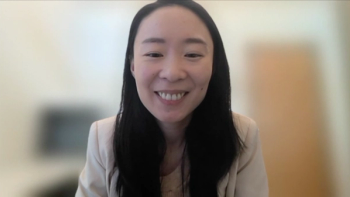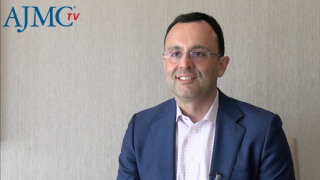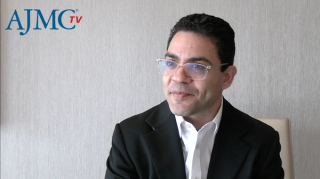
Technology
Latest News
Latest Videos

CME Content
More News

These studies published in The American Journal of Managed Care® explored telehealth, care access, and patient experience during the COVID-19 pandemic.

Patients expressed concern that overreliance on artificial intelligence (AI) could lead to clinicians losing their skills, both medical and interpersonal.

The role of artificial intelligence, DataDerm, and telehealth in advancing dermatology care was discussed throughout the meeting, with experts highlighting their potential regarding patient access and health equity.

This is the fifth and final article in a series on value-based care and the 4 challenges health care organizations must overcome.

Areas for further research suggested by Xin Hu, PhD, MSPH, include examining differences in telemental health uptake between new and existing patients and exploring how these differences vary across demographic subgroups.

As health care costs continue to rise and the burden of chronic disease grows, data-driven insights will be essential in shaping the future of patient care, according to experts from Komodo Health and SmarterDx.

The invasive nature of lipid biopsies has lead researchers to dedicate more efforts to unveiling noninvasive diagnostic methods for metabolic dysfunction–associated steatohepatitis (MASH).

Cardiologists, primary care physicians, and value-based care leaders convened in Phoenix, Arizona, on November 12, 2024, to share case studies and insights on how to align cardiology with the principles of value-based care, including through the application of digital tools.

Artificial intelligence (AI) is emerging as a tool that can improve patient outcomes and provider care efficiency, says Douglas Flora, MD, FACCC, of St. Elizabeth Healthcare.

Advancing technologies have transformed the detection of heart disease and, in turn, streamlined medical processes and relieved burden on health care systems.

Xin Hu, PhD, MSPH, hypothesizes that these telemental health disparities could be driven by language barriers, historical mistrust, and systemic challenges.

Men with melanoma tend to be diagnosed later and have worse outcomes. Artificial intelligence can help change that, a review suggests.

Despite a surge in telemental health use after the onset of the COVID-19 pandemic, minority racial/ethnic group children had lower utilization rates than White children, according to Xin Hu, PhD, MSPH.

Artificial intelligence (AI) helps a Sarasota, Florida, health system catch lung nodules that appear on CT scans for patients treated for scores of conditions, allowing them to be referred for a possible lung cancer diagnosis.

Using artificial intelligence (AI) to help expedite processes for physicians can help them spend more face time with patients and stay up-to-date with the medical literature, says Douglas Flora, MD, FACCC.

A discussion with the presidents of the Association of Cancer Care Centers (ACCC) and the American Society of Clinical Oncology took place at the ACCC 51st Annual Meeting & Cancer Center Business Summit.

Thy N. Huynh, MD, FAAD, Bruce A. Brod, MHCI, MD, FAAD, and Melissa Piliang, MD, FAAD, discussed expanding access to pediatric dermatology, dermatology data aggregation, and advocacy for Medicare physician payment reform, respectively.

A letter from the guest editor highlights how the findings in this special issue touch on timely themes in health technology research and yield real-world considerations for practice.

This article explores the challenges and highlights actionable telehealth solutions that enhance access to care, particularly for mothers at higher risk of postpartum depression.

A stratified demographics analysis of video visit telemetry data reveals that age older than 65 years and African American/Black race are associated with higher video visit failure rates, whereas language, sex, and ethnicity are not.

Nick Webb tells attendees at the Association of Cancer Care Centers that consumer experience and workforce happiness will be keys to success in the future for health systems.

Telemedicine utilization has declined since the peak of the COVID-19 pandemic, but non–primary care specialties continue to see an increase in moderate- and high-complexity telemedicine visits.

Artificial intelligence (AI) and electronic health record–based automation tools helped a safety-net health system meet performance-based readmission metrics, thereby retaining critical funding while improving clinical and equity outcomes.

In this qualitative investigation, leaders of Medicaid managed care plans were interviewed to identify facilitators of and barriers to electronic consultation for specialty care delivery.

This article presents challenges and solutions regarding health care–focused large language models (LLMs) and summarizes key recommendations from major regulatory and governance bodies for LLM development, implementation, and maintenance.




















